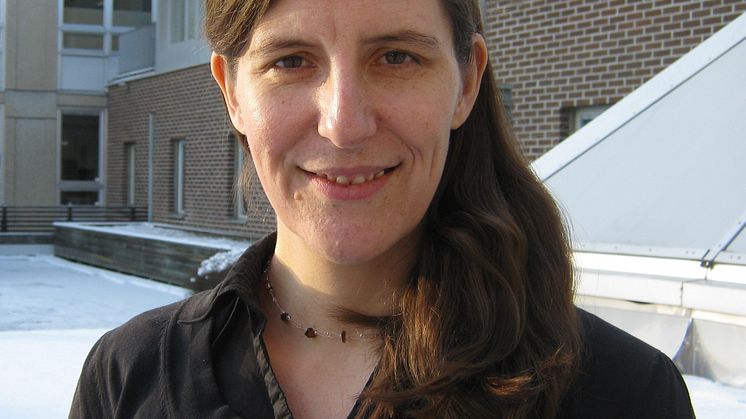Press release -
Obesity reduces the size of your brain
New research from Uppsala University shows that a specific brain region linked to appetite regulation is reduced in elderly people who are obese. Poor eating habits over a lifetime may therefore weaken brain function that helps us to control our desire to eat. The findings are published in The International Journal of Obesity.
Researchers Samantha Brooks and Helgi Schiöth, of the Department of Neuroscience at Uppsala University, and researchers in London, showed in an earlier article published in BMC Psychiatry that excessive regulation of appetite in those with anorexia nervosa is linked to greater brain volume in the same region. This research also showed that in anorexic females, the more they restrained their eating, the larger this brain region was.
In a new study, Samantha Brooks, together with colleagues from Uppsala University (Christian Benedict, Helgi Schiöth, Elna-Marie Larsson, Håkan Ahlström and Lars Lind) and researchers from other European universities, have now looked at which brain regions, involved in regulation of appetite, are altered in those with long term obesity. By means of magnetic imaging (MRI) the researchers studied the brains of 292 elderly males and females who were classified as consistently obese or normal weight over a five year period before and after the brain scan. In those suffering from obesity a reduction in the frontal part of the brain was found. The researchers further examined the effects of being obese on a brain function linked to self-regulation of food intake, and found cognitive deficits in those who where obese compared to those who were normal weight.
Samantha Brooks explains:
“Those elderly people who were consistently obese over a five year period showed reduced frontal brain volume and deficits in a brain function that helps us to control our food intake. Obesity is on the increase in our modern societies, and while our research cannot determine whether obesity causes or is a consequence of reduced brain volume, in light of our previous research it suggests that if you don’t use your brain to think about what you eat, you may not only lose your waist line, but brain volume as well.”
For more information, please contact Samantha Brooks, researcher at the Department of Neuroscience, mobile: +46 (0)709 498275, e-mail: samantha.brooks@neuro.uu.se
or Cecilia Yates, information officer at the Department of Neuroscience, mobile: +46 (0)704-334801, e-mail: cecilia.yates@neuro.uu.se
Brooks S et al. Late life obesity is associated with smaller global and regional gray matter volumes: a voxel-based morphometric study. International Journal of Obesity, in press.
Topics
Uppsala University -- quality, knowledge, and creativity since 1477
World-class research and outstanding education of global benefit to society, business, and culture.
Uppsala University is one of northern Europe's highest ranked academic institutions. www.uu.se

